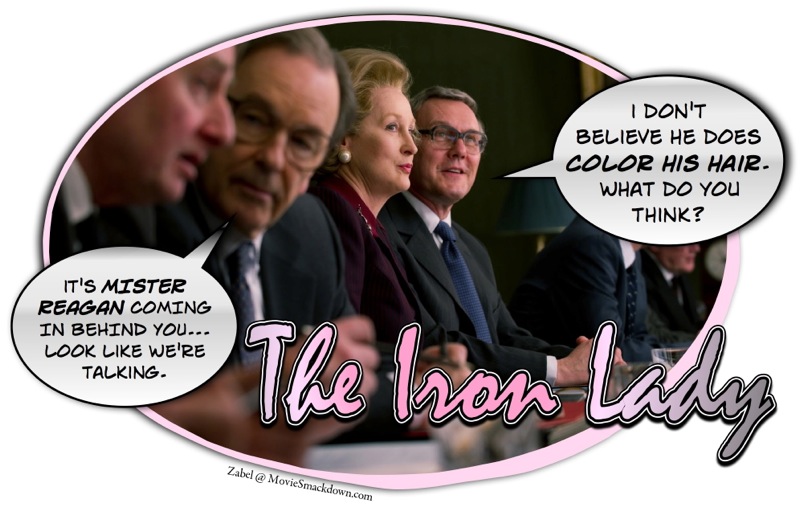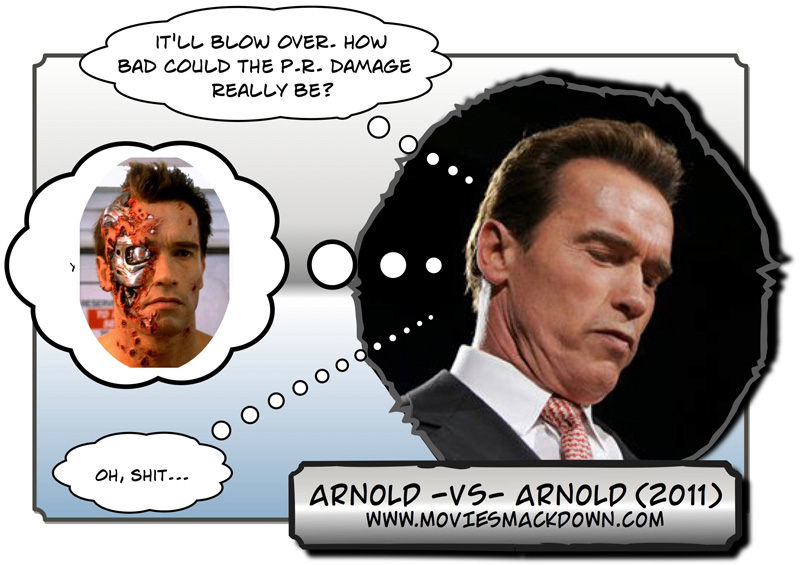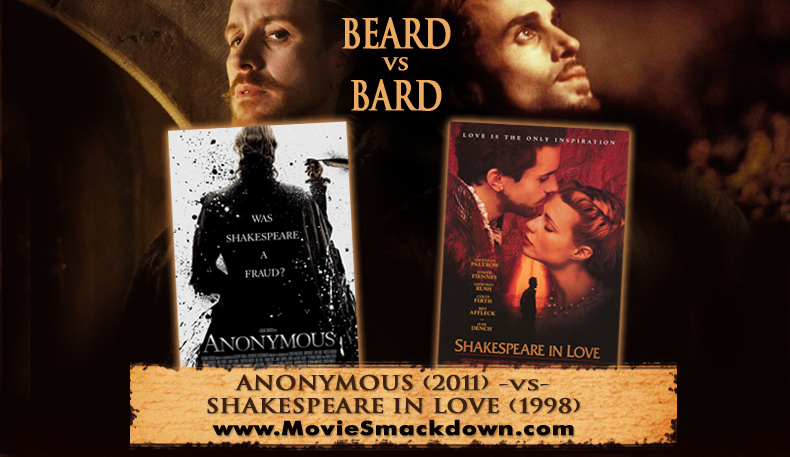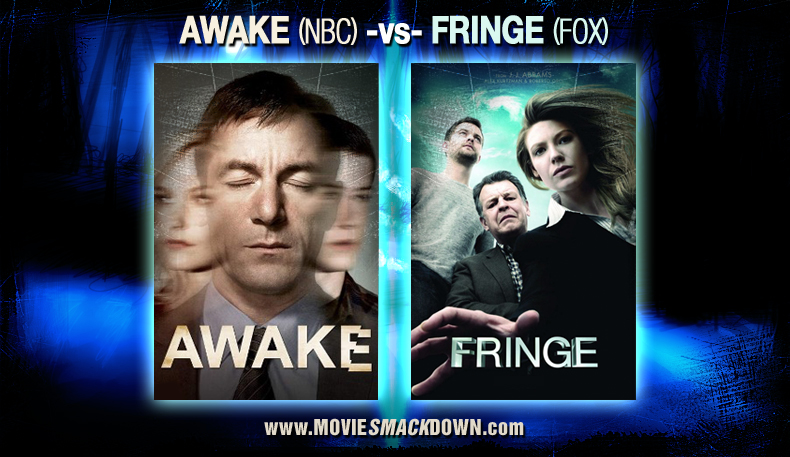
The Smackdown
We’re off to Britain for this Smackdown, and what’s more, we’re heading straight to the top of the ruling class.
Facing off are the two prongs of the country’s administration—the government, as represented by imposing prime minister Margaret Thatcher in The Iron Lady, and the monarchy in the more refined form of Elizabeth II, the title character in The Queen.
The administration and the royal family have had an often-contentious, side-by-side relationship for centuries, so we’ll do our best to inflame that rivalry by pitting these two imperious women against each other in this contest.
Unlike in modern Britain, however, only one side can triumph and rule over all. Will it be the royals or the politicians?
 The Challenger
The Challenger
Even in doddering old age and retirement, feisty Margaret Thatcher (Meryl Streep) is a handful. Widowed and alone in her big apartment, she is a constantly demanding, argumentative presence, taxing the help tasked to look after her, the doctor who monitors her health, and even her patient daughter. In addition to the lady’s naturally difficult personality, this is the product of a dementia that has crept in and twisted her thoughts.
It’s bad for Maggie but good for the movie: Her deteriorating, confused mental state serves as a convenient device to poke through her life. Whipping back, forth and sideways through time, we see the highlights of that eventful existence. These range from her humble origins as the daughter of a grocer and local politician to the coup (or “betrayal,†in her view) by her own ministers that drove her out of power in the early 1990s.
In between, there’s the meet-cute and eventual marriage to goofy but supportive Denis (played by Game of Thrones‘ Harry Lloyd as a young man, and by Jim Broadbent as the older version and, after his demise, in Margaret’s dementia-fuelled apparition). We also witness her first election victory and ascension to the boy’s club that was Parliament in the late 1950s, then her steady rise to power. She’s sharp and determined and manages to push her way to the top of the Conservative party, a woman succeeding and exceeding in a man’s world. Love her or hate her, before her fall from grace, Maggie not only manages to be the longest-serving prime minister in the 20th century, she reinvents Britain by privatizing its dying industry and projecting its power across the world.
 The Defending Champion
The Defending Champion
It’s 1997 and the royal family is in crisis. Prince Charles and Princess Diana are going through a nasty breakup, and thanks to Diana’s constant disparaging of Charles and his kin, the monarchy’s reputation is getting tarnished. This worsens with Diana’s untimely death in a gruesome car crash after a night of drinking with her lover. The head of the family (and, technically, the British government) is Queen Elizabeth II (Helen Mirren), whose reserved, seemingly genteel nature is apparently ill-suited for moments of crisis.
The situation is tough to begin with and the monarch’s first instinct is to retreat in order not to exacerbate it. In the hopes of having the controversy subside, she hibernates at the family’s Balmoral Castle with the ineffectual Charles (Alex Jennings), his two young boys, and her cranky husband Philip (James Cromwell, an interesting choice for the role given that he shares a surname with a man who once deposed the royal family).
The crisis is a big one, however, and it won’t blow over so easily. This is due in no small part to smooth-tongued, ambitious new prime minister Tony Blair (Michael Sheen), who constantly needles the Queen to show her human side and mourn publicly for Diana. But this isn’t an easy request given how ungracious her late daughter-in-law was to the royal family. For the first time in her very long reign as monarch, Elizabeth is forced to come far out of her shell or risk seeming cold and out of touch with her people.
The Scorecard
Of the two Brits, The Queen has a more straightforward story and plot: Diana dies, family’s in crisis, pressure builds, Elizabeth makes her decision. Director Stephen Frears and writer Peter Morgan wring a lot of drama out of the Queen’s path to get to that point, and there’s always a slight sense that dramatic license is at work. The Iron Lady‘s central plot device, concocted by screenwriter Abi Morgan (Shame) and director Phyllida Lloyd (she directed Meryl in Mamma Mia!), allows it to roam more freely over its subject’s life, presenting Maggie’s career as a series of vignette dramas. This conceit makes it feel fresher than its rival, but there’s a cost—we keep coming back to the doddering senior citizen puttering around in her apartment and conversing with a vision of her dead husband. Since there are many scenes of this, the impression of the old girl we’re left with is of a helpless and senile person. The Queen‘s story takes us straight through an eventful slice of the lead character’s life, so we get a very sharp sense of what she’s like and what motivates her actions. This mitigates the extra drama laid over the story by Morgan and Frears.
In contrast, much of what we see of The Iron Lady is over-the-hill, delusional Margaret, and this distorts our impression of her. We certainly get a sense of her struggle and subsequent political rise and fall with the “greatest hits” tour through her life, but this provides a less thorough understanding of her core personality than does the story of The Queen. Both Mirren and Streep, acting royalty of their generation, do impeccable and fine work in their respective offerings. Mirren, in fact, won an Oscar for her work, and Streep may well follow suit. Ultimately, though, Dame Helen is given more substantial material to work with and this gives her film the edge. We get to know Elizabeth better than we do her long-serving prime minister.
The Decision
Followers of British history know that the monarchy’s power and significance were drastically curtailed and nearly eliminated several centuries ago. But this isn’t history; it’s a Smackdown, and in our contest it’s the monarchy that triumphs. Maggie Thatcher was a groundbreaking politician, but she can’t pull it off against her sovereign. So in this Movie Smackdown, sword, crown and scepter go to Frears/Morgan/Mirren’s film. Long live The Queen.






“The Queen” with wonderful Helen Mirren has it hands down!!
Helen Mirren is British and she was playing Queen Elizabeth when she was an active Queen. Whereas Meryl Streep, an American; although she is a great actress, was playing the Iron Lady, a retired politician at the time, basically, looking back on her life. The intensity wasn’t there. Besides there is something about Mirren that lent an air of realism to the film.. I loved it!!
Okay, just got out of “The Iron Lady” — audience pretty much on the upper end age group-wise — and, while I think Streep’s performance is award quality, the film is not quite. The choice to dwell in her present tense old age dementia really deprived the rest of the film of the juice and the detail it could have used.
A little of the Jim Broadbent schtick went a long way for me and I found myself, knowing what a fascinating character Margaret Thatcher is and how great Meryl Streep is, and just being irked that they short-changed so much of that important story to serve their device.
http://www.moviesmackdown.com/2011/12/the-iron-lady-vs-the-queen.html
I loved The Queen – Helen Mirren is fabulous! And I really am looking forward to seeing Iron Lady. Could this be another nomination for Meryl Streep? Hasn’t she set records already??? This actress picks all the right roles. Great smack!